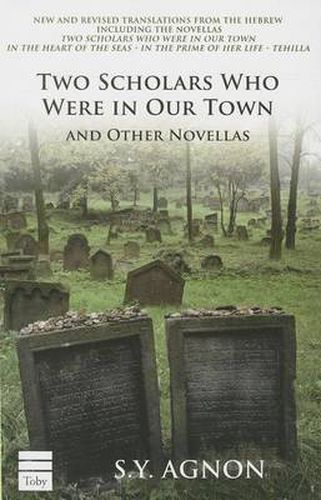Readings Newsletter
Become a Readings Member to make your shopping experience even easier.
Sign in or sign up for free!
You’re not far away from qualifying for FREE standard shipping within Australia
You’ve qualified for FREE standard shipping within Australia
The cart is loading…






New and revised translations from the Hebrew Including the Novellas Two Scholars Who Were in Our Town In the Heart of the Seas In the Prime of Her Life Tehilla. The volume’s title story Two Scholars Who Were in Our Town tells of the epic clash between two Torah scholars who according to the Talmudic phrase cannot abide each other in matters of halakhah . Narrating from a point three or four generations after the action, the narrator waxes nostalgic even elegiac for a time when Torah was beloved by Israel and the entire glory of a man was Torah, [when] our town was privileged to be counted among the most notable towns in the land on account of its scholars. With his typical irony at work, the narrator pines for an earlier, more ideal time which turns out to have been rife with flaws and tragic personalities of its own. This is Agnon at his best distilling the classical texts of Jewish study into a modern midrashic matrix on which he composed his Nobel-winning literature.
$9.00 standard shipping within Australia
FREE standard shipping within Australia for orders over $100.00
Express & International shipping calculated at checkout
New and revised translations from the Hebrew Including the Novellas Two Scholars Who Were in Our Town In the Heart of the Seas In the Prime of Her Life Tehilla. The volume’s title story Two Scholars Who Were in Our Town tells of the epic clash between two Torah scholars who according to the Talmudic phrase cannot abide each other in matters of halakhah . Narrating from a point three or four generations after the action, the narrator waxes nostalgic even elegiac for a time when Torah was beloved by Israel and the entire glory of a man was Torah, [when] our town was privileged to be counted among the most notable towns in the land on account of its scholars. With his typical irony at work, the narrator pines for an earlier, more ideal time which turns out to have been rife with flaws and tragic personalities of its own. This is Agnon at his best distilling the classical texts of Jewish study into a modern midrashic matrix on which he composed his Nobel-winning literature.